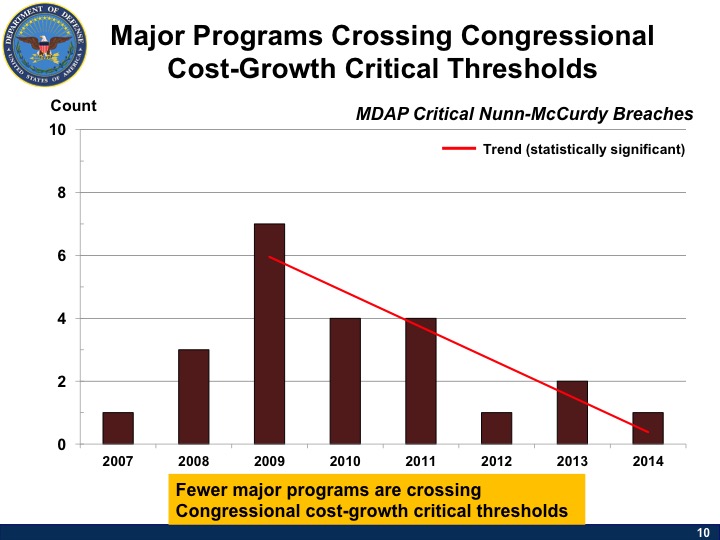Kendall Warns Sen. McCain, Gen. Milley On Acquisition Reform
Posted on

Frank Kendall visiting Bagram airbase in Afghanistan.
WASHINGTON: In a marathon 90-minute appearance this morning, the Pentagon’s top buyer praised the progress of military procurement reforms so far. Just as important, undersecretary Frank Kendall (politely) warned Sen. John McCain and Gen. Mark Milley against what Kendall considers the wrong kind of reform.
[UPDATE: See the end of this article for Kendall’s detailed statistical slides]
Kendall fought a losing battle last year against McCain’s campaign to give more acquisition authorities to the uniformed chiefs of the four armed services. The most enthusiastic about their new powers has been Army Chief of Staff Milley, who recently asked Congress for even more independence from the central civilian policymakers like Kendall.

Gen. Mark Milley
“He’s asked for some authorities in this report to Congress that go further than I feel comfortable with,” Kendall said of Milley at the Center for Strategic and International Studies this morning.
Meanwhile, Senate Armed Services Committee chairman McCain has — so we hear — more than 100 acquisition reform provisions in the SASC draft of the annual defense policy bill, which is now undergoing its closed-door mark-up. Not only does McCain have a track record of conflict with Kendall, McCain’s not telling Kendall’s his future plans.
“I don’t know what the Senate’s going to do; we’ve had some conversations at the staff level,” no more, said Kendall. By contrast, the undersecretary said, “I worked very closely with chairman Thornberry” — Rep. Mac Thornberry of the House Armed Services Committee. Thornberry is a Texas lawyer whose temperament and reform proposals are much more cautious than ex-jet-pilot John McCain’s, despite both being reform-minded Republicans, and the delicate collaboration between the two men does much to shape the annual National Defense Authorization Act.

Sen. John McCain and Rep Mac Thornberry, chairmen of the Senate and House Armed Services Committees
Admittedly, Kendall doesn’t agree with everything in Thornberry’s draft. The undersecretary shares his boss’s objections to the $18 billion budgeting gimmick that would shortchange the war fund — aka Overseas Contingency Operations (OCO) — to pay for new weapons and other priorities not related to Afghanistan and Iraq. This is a “fundamental change” that’s different in kind, not just in quantity, from previous, smaller uses of OCO for “base budget” needs, Kendall said.
Besides that one big difference, however, Kendall had nothing but praise for the HASC chairman. While Thornberry had some overly stringent prescriptions about modular open architecture in an early draft, for example, he rewrote it to allow the Pentagon more discretion after consulting with Kendall, the undersecretary said appreciatively.
“It’s not simple to write a law or rule that captures every situation,” said Kendall. “In fact, it can’t be done.” That’s why you need to allow people to use their discretion — and choose people who know what to do with that freedom.
Military and business experience are important, but “a technical background is critical,” Kendall said. “Engineers should run development programs because you can’t supervise engineering if you aren’t one.”
One of Kendall’s concerns with giving the uniformed service chiefs more authority is that they lack engineering and contracting experience, he said, with the significant exception of Chief of Naval Operations Adm. John Richardson, a nuclear submariner. They’re the leading experts on military needs, he said, so “we’re very happy with their increased involvement” in setting requirements and saying what kind of performance is worth paying a premium for. But service chiefs should not be determining “contracting strategies.”

Slide presented by Undersecretary Kendall at CSIS
Nor should Congress, Kendall almost said aloud. The Defense Department is actually doing pretty well at reducing cost overruns, he argued, citing extensive statistics (his slides are appended below), and new policy and legislation should be based on data –but there are cyclic fads in defense reform which he fears may influence legislators. In the 1990s, he noted, we cut the bureaucracy and gave lead contractors free rein, on the premise that the Pentagon just needed to get out of the way of free enterprise. Instead, it led to some epic overruns and delays like those on the Army’s cancelled Future Combat Systems program. “I feel a wave of that coming through and it makes me nervous,” he said, “[because] we’ve tried that before, multiple times, and it does not work.”
Likewise, requiring fixed-price contracts for high-tech, high-risk weapons developments has been tried before, as with the Navy’s cancelled A-12 Stealth Bomber. When fixed-price contracts were proposed for the Air Force’s new Long-Range Strike Bomber, the B-21, Kendall recalled, “I said no, absolutely not.”
What Kendall didn’t say out loud: The man pushing hardest for a fixed-price contract on the B-21 — to the point of threatening to halt the program — is Senator John McCain.
Subscribe to our newsletter
Promotions, new products and sales. Directly to your inbox.
